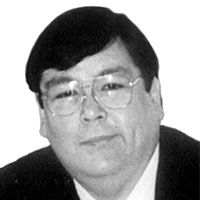Senseless panic in Metro Manila, grace under fire in Japan

It shamed me to hear from Jun Banaag of DZMM’s afternoon nostalgia treat, Dr. Love, shortly after 2 p.m. last Monday, that an utterly incredible text message was generating panic in Metro Manila for supposedly harmful radiation that will hit us at 4 p.m. from the damaged nuclear plants in Japan.
It’s embarrassing because the Japanese people who are nearest the radiation leak are hardly worried. It’s embarrassing because it betrays the extent of the Information and Education Gaps in our country which Philippine media fail to address. It’s embarrassing because, as described by Science and Technology Secretary Mario Montejo, the radiation leak outside the nuclear power plant is less than the radiation level of a CT Scan. Common sense would tell you that whatever leak could still get to our shores would have been lessened, not increased.
It got me thinking that Monday afternoon while listening to the old musical favorites that Jun Banaag plays on Dr. Love — that this attitude and character are what separate developed countries like Japan from underdeveloped countries like the Philippines. The Japanese are not even blessed with the natural resources that we have, but look at what they did to their country and what we did to ours.
In the face of an extremely long 8.9 earthquake at the center, a devastating tsunami that swept six miles inland and nuclear plant explosions — the grace under fire demonstrated by the Japanese people in the earthquake and tsunami affected areas is both admirable and enviable. There were no wailing survivors pleading their government to locate their missing kinfolks. There was no panic to be seen in the various areas where the earthquake was videotaped while happening. There was no hysteria in the face of that tsunami that suggested an “end of days” scenario. There was no grandstanding Opposition politician trying to make political capital out of what is clearly an act of God.
Imagine what the scenarios would have been like if we Filipinos were the ones who suffered from that 8.9 earthquake with the tsunami and nuclear plant meltdown. A Filipino OFW (overseas Filipino worker) from an area in Japan that was not even affected by the deadly tsunami told ANC that she planned not to return to Japan anymore. On CNN, a Japanese mother calmly narrated how she and her daughter were swept by the tsunami and how her daughter remains unaccounted for. Relatives of our OFWs in Japan are all over media — crying and appealing to be connected to their kinfolks. All they needed was a telephone connection while the unperturbed Japanese is searching for loved ones, a new home, food and water and a new source of income.
Despite the scarcity of food and water due to distribution paralysis, there were no food or water riots that have been reported in Japan. Despite the great distance Tokyo workers travel to and fro their respective homes — averaging anywhere from one to three hours by bullet train — there were no reported untoward incidents when trains stopped operating. There were no reported lootings in Japan.
In their big moment of a severe national catastrophe, the Japanese people shone. Only a great people shine in the most trying moment of their history. Your wheelchair bound Chair Wrecker felt a powerful urge to stand at attention and salute the gallant Japanese people. The emotion felt was both that of supreme admiration and envy as well.
After the end of World War II, Japan was one of the most devastated countries. Hardly any Japanese factory was spared from Allied carpet bombings. The first two atomic bombs were detonated in the Japanese cities of Hiroshima and Nagasaki. Barely 20 years after World War II ended, Japan was Asia’s biggest economy and had hosted the 1964 Tokyo Olympics. At about this time, we were the second best performing economy in Asia. We’ve sunk much lower since and we have yet to host the Olympics.
The Japanese are not only known for their dedication and bravery. They are noted for their devotion to the group effort. They are the quintessential team players. Over here, US President John F. Kennedy is admired and often quoted for saying during his inaugural address: “Ask not what your country can do for you. Ask what you can do for your country.” To the Japanese “Ask not what your country can do for you” has no relevance. The typical Japanese will only ask what he can do for his country.
We Filipinos have demonstrated once that we too are capable of this greatness, this grace under fire. Few world events can top Filipino grace under fire as when we staged People Power in 1986 — confronting an attacking tank column with rosaries and religious images. Remarkably, our brand of People Power continues to inspire other nations to this day, 25 years after we showed the world how it’s done.
However, for us Filipinos — our great moments like People Power 1986 are few and far in between. Japanese leaders live by their Bushido Code 24/7 while many Filipino politicians are notorious for their “Dr. Jekyll and Mr. Hide” personality. Nothing is more pathetic than a nation that had demonstrated a capability for greatness but is hopelessly mired in mediocrity and poverty.
* * *
Chair Wrecker e-mail and website: [email protected] and www.chairwrecker.com
- Latest
- Trending

























